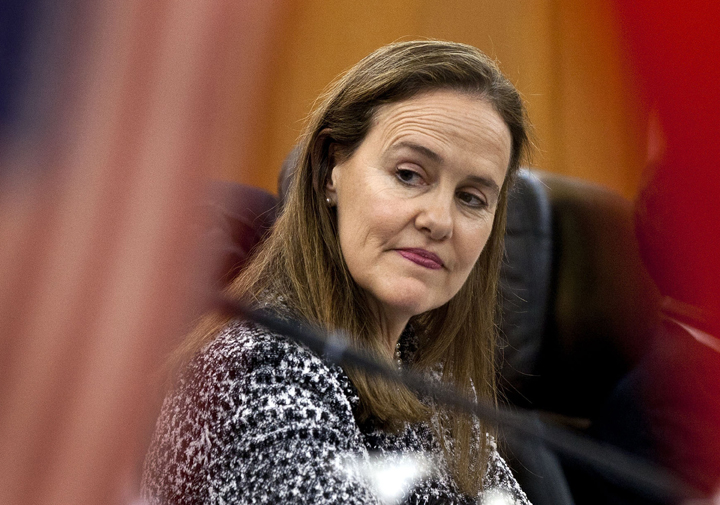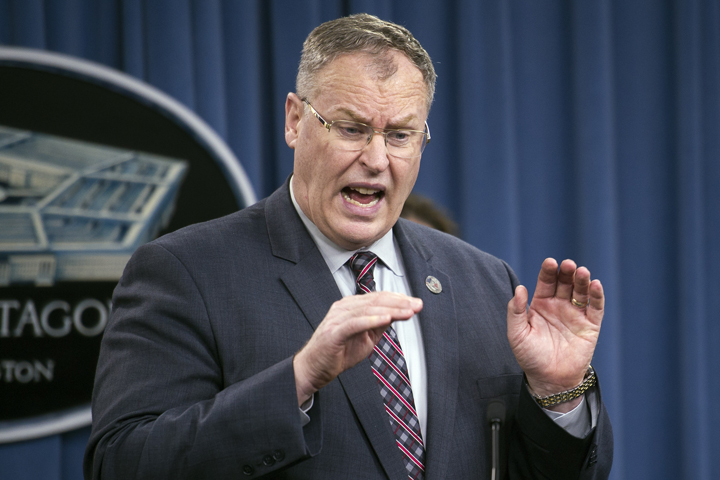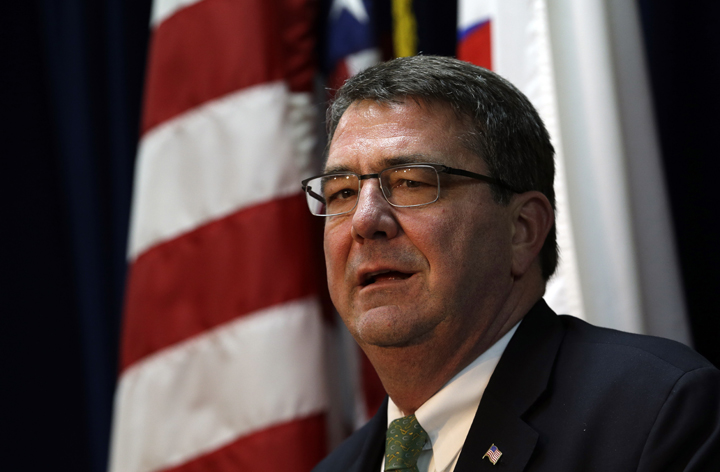White House spokesman Josh Earnest on Monday said President Obama doesn’t have a time frame for naming Defense Secretary Chuck Hagel’s replacement.
There could be a very good reason for that, defense experts on the left and right argue. Any successor must be willing to take on the challenge of carrying through on Obama’s military policies in a rapidly changing and challenging environment.
Spending the next two years continuing Obama’s campaign against the Islamic State of Iraq and Syria, which has shown few tangible and lasting successes in its first few months, they say, could be a national security career-ender if little progress is made or worse, if the Islamic State gains even more control of the region.
It could also prevent any Hagel successor from serving in a top position on a new president’s national security team.
Danielle Pletka, the vice president for foreign and defense policy studies at the American Enterprise Institute, said the biggest question on replacing Hagel is who would take the job.
“It’s a misery,” she remarked.
Sen. Jack Reed, D-R.I., a respected center-left voice on foreign affairs, immediately took himself out of the running for the post Monday morning. And no one appears to be aggressively lobbying for it — even through surrogate supporters.
Still, defense experts point out, it’s difficult to say “no” to a sitting president and decline an offer for a top Cabinet post, especially at a time of so much global turmoil.
The top candidates to replace Hagel will have a lot to think about over the Thanksgiving recess.
Here are a handful of serious contenders:

Michele Flournoy
Several military experts and defense analysts told the Washington Examiner the job is Flournoy’s to accept or decline.
Long considered the most likely candidate to become the first woman defense secretary, Flournoy has a long list of accomplishments at the Pentagon.
After co-leading Obama’s transition team in 2009, she served as the undersecretary of defense for policy from that year until 2012, and previously held several deputy assistant secretary positions.
In 2007, Flournoy co-founded the Center for New American Security, and currently serves as its chief executive officer.
After working for Defense Secretaries Robert Gates and Leon Panetta, she was considered a top candidate to replace Panetta in 2013 when he decided to retire.
At the time, Flournoy strongly advocated for a residual U.S. force to remain in Iraq, which some experts believe caused Obama to bypass her in favor of the more like-minded Hagel but would be viewed more favorably now, considering the Islamic State’s rapid rise and the incoming Republican majority in the Senate.
Other defense experts predict Flournoy would rather wait to serve in a top post on Hillary Clinton’s national security team and will likely wait it out instead of jumping in at the end of Obama’s final term.
“It’s no surprise, but Michele Flournoy is very popular in the center-to-left think-tank world where she operates,” said one left-leaning defense expert who asked to remain anonymous.
“She is very thoughtful and understands the policy work and how to interact with the [non-governmental organization] community, which is an important factor,” the expert continued. “She would have huge, bipartisan support … but it’s not clear that she wants to step into that gap in the last two years of the Obama administration.”

Bob Work
Respected on both sides of the aisle, the former Marine and undersecretary of the Navy lives up to his name.
Many top staffers on Capitol Hill and in the defense think-tank world regard him as the backbone of the Pentagon since his confirmation as deputy secretary in April of this year.
Before returning to the Department of Defense, Work, a 27-year military veteran, also led CNAS.
“As to Hagel’s replacement, I believe the president will look for a Democrat this time,” said Charlie Dunlap Jr., a professor at Duke Law School’s Center on Law, Ethics and National Security. “Bob Work, the highly regarded current deputy secretary, would have to be on the short list.”
But Jed Babbin, a former deputy undersecretary of defense in the George H.W. Bush administration, predicts that Obama won’t select Work, arguing that he would raise too many questions and wouldn’t submit to simply implementing White House policy.
“He’s not the kind of guy who’s going to defend the indefensible,” Babbin said.

Ashton Carter
During a five-year stint at the Pentagon from 2009 to 2013, Carter served as the deputy defense secretary under Gates and Hagel and in the No. 3 position, undersecretary of defense for acquisition, technology and logistics.
Carter also was a contender for the top Pentagon job in 2013 and resigned at the end of that year after Obama tapped Hagel instead.
Some of Carter’s top accomplishments include helping the Pentagon navigate budget cuts from sequestration and leading two major reviews of national security strategy that ended in developing the administration’s Asia pivot and new cyber-warfare strategy.
Carter also has extensive ties to the private defense sector. Before coming to the Pentagon, Carter was a senior partner of Global Technology Partners, a tech and defense firm, and advised Goldman Sachs on global affairs.
